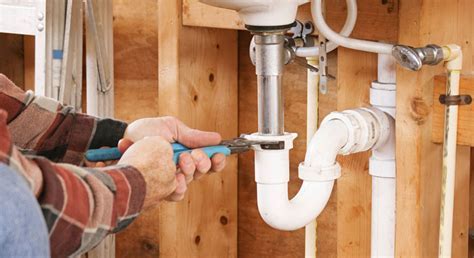Introduction
Blocked drains are a common problem in many households and businesses. They can cause a lot of inconveniences and may lead to costly repairs if left unattended. Blocked drains can occur for various reasons, such as hair, grease, oil, food particles, and foreign objects getting stuck in the pipes. In this article, we will discuss the causes of blocked drains, how to prevent them and what solutions are available to fix them.
Causes of Blocked Drains
1. Grease and Oil
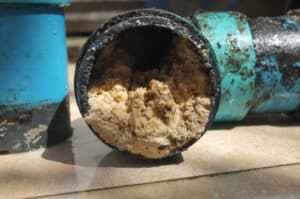
When grease and oil are poured down the drain, they can harden and stick to the inner walls of the pipes. Over time, this can cause a buildup restricting water flow, eventually leading to a blockage.
2. Hair and Soap
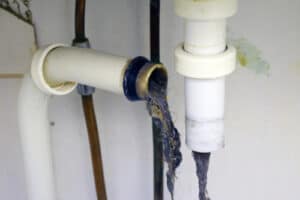
Hair and soap can accumulate in the drain and create a blockage. This is especially common in shower drains, as hair and soap can easily get washed down the drain.
3. Food Particles
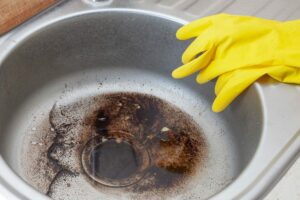
Food particles can also cause blockages in kitchen drains. When food is washed down the drain, it can get stuck in the pipes, creating a buildup restricting water flow.
4. Foreign Objects
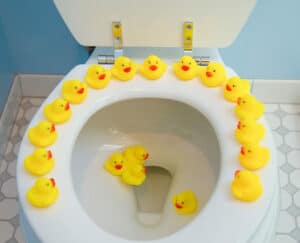
Objects such as toys, sanitary items, and wet wipes can also cause blockages in the drain. Therefore, these items should never be flushed down the toilet or washed down the drain, as they can cause significant issues.
5. Cat litter
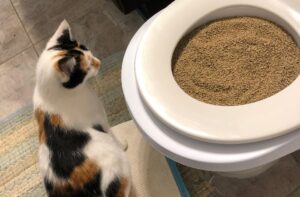
As kitty litter is designed to clump and absorb moisture the last place you want it in your drains, never put it down the toilet.
In summary, what is the leading cause of blocked drains?
Blockages are likely to occur from large items flushing into a hose. In addition, overflowing water pipes can be clogged or hindered by toiletries, paper towels, or similar hard-to-wash materials.
Prevention of Blocked Drains
What is the best way to prevent blocked drains?
1. Dispose of Grease and Oil Properly
Instead of pouring grease and oil down the drain, it is recommended to let it cool and dispose of it in the garbage.
2. Use a Drain Cover
Using a drain cover can prevent hair, soap, and other debris from going down the drain and causing a blockage.
3. Dispose of Food Properly
Food scraps should be disposed of in the garbage instead of being washed down the drain. Using garbage disposal to break down any food particles is also recommended.
4. Large objects and no disposable materials should never be flushed down the toilet or washed down the drain. Instead, proper disposal methods should be followed for these items.
Solutions for Blocked Drains
Some easy tips for minor clogged drains at home.
1. Plunging
Plunging can be effective in clearing minor blockages. It creates suction that dislodges the blockage and allows it to be washed away.
2. Chemical Drain Cleaners
Chemical drain cleaners can be used to dissolve blockages. However, they should be used cautiously as they can harm the environment and damage pipes.
They are not good friends with the environment, but commercial caustic cleaning products can remove more demanding challenges such as hair and grease. Keep clean and comfortable skin, use a protective mask, keep in the chemicals for ribbed press duration and use drainpipes with cold water afterwards if needed. Acidic cleaners are not recommended on PVC pipes, old pipes or a few pipes glued together.
3. Drain Snake
A drain snake can manually remove blockages from the drain. It is a long, flexible tool that can navigate through the pipes and dislodge the blockage. Or you can DIY drain snake using a metal cloth hanger and make a hook on the end of the hanger.
4. Professional Plumbing Services
For more severe blockages, it is recommended to seek the services of a professional plumber. They have the expertise and tools to remove the blockage and prevent further issues effectively.
5. How we clear blocked drains naturally
Our team of plumbers are experts at delivering drain services. We know how to clear blocked drains and all. Our drain plumbers implement the use of water jet blasting instead of the use of chemicals where it’s possible or electric eels. A water jet is practical and environmentally friendly. Drain cleanings are best left to our team of plumbers when plumbing issues present themselves.
Are you facing some of these common blocked drain problems? If you do, give us a call ASAP.
- Is water beginning to pool around the floor drain?
- Are the toilets, showers and baths draining slowly?
- Is there a smell coming up from the drain?
- Can you hear gurgling after letting water down the drain or flushing the toilet?
- Is the water level in the toilet bowl rising or getting too low?
- Do you have an overflow drain outside?
These common blocked drain issues can quickly become more significant if not looked after properly. Our drain specialists are equipped with the right tools for the job at any time of the day.
High-Pressure Water Jetter.
Water jets are capable of lifting the most robust blocks of debris along. Plumbers should use the device because it has mighty forces. The incoming water pressure can get through trees to remove debris from them.
CCTV drain inspection camera.
CCTV drainage inspection camera is an excellent way of inspecting damaged pipes. It is attached in the cable to lines, guiding it in real-time to detect the problem.
Excavation.
A severe blockage may require a plumber to dig out the area around the pipe, remove blockages, repair damage then replace the pipe and backfill. In addition, old clay pipes can crack and collapse, and the entire pipe may need to be dug up and returned to clear the blockage.
FAQs
Q: How do you unblock a blocked drain?
DIY drain cleaner can clear your kitchen sinks, and toilets of toilet drains. First, pour boiling water into your water and add more baking soda. Just a minute. Then add another cup of vinegar and boiling water. Next, remove the drain plugs and wait until it reacts for 5-10 minutes. After that, make sure the sink gets cleaned again. Finally, pour some more boiling water down the drain.
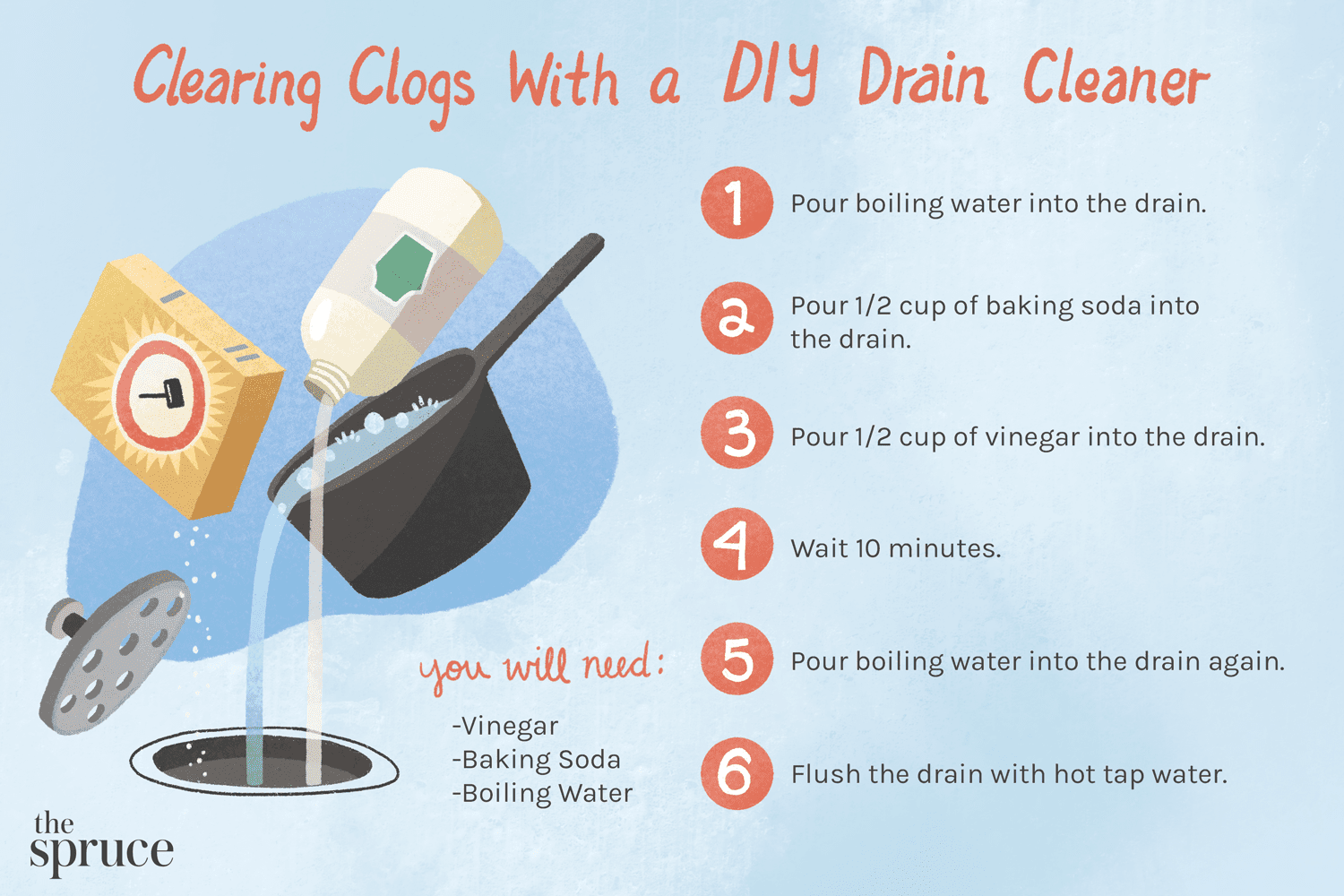
Q: Can block drains cause health issues?
A: Yes, blocked drains can cause health issues. The stagnant water and waste trapped in the pipes can create a breeding ground for bacteria and other harmful microorganisms. This can lead to foul odours, water supply contamination, and other health hazards. Addressing blocked drains as soon as possible is essential to prevent such issues.
Bacteria Breeding Grounds
The types of bacteria found flourishing in backed-up pipes are not for the faint-hearted! From a 24-hour bug to a trip to the hospital, ignoring blocked drains is not worth the risk. The same can be said for quick-fix online solutions.
Some rapid remedies like chemical drain cleaners damage your drainage system, while others can aid breeding!
The smart, safe choice would be to swap your plunger for a plumber when you notice badly blocked drains.
Escherichia Coli
Ah, E. coli, a crowd favourite – not! You’ll find this one in drains exposed to fresh produce, unpasteurised milk, contaminated food and water, or someone already sick with it.
Although most strains are beneficial for your gut, there are six sickening strains you want to avoid. Some cause diarrheas, while others cause:
- Urinary tract infections
- Respiratory illness
- Pneumonia
- Abdominal pain, cramping, or tenderness
Salmonella
Any drains exposed to meat, fresh produce, dairy products, or sewage are the perfect place for Salmonella to thrive. Salmonellosis can last up to seven days. In severe cases, hospitalisation is necessary. The symptoms include:
- Diarrhea
- Fever
- Abdominal cramps
- Vomiting
Staphylococcus Aureus
This unpleasant bacterium thrives in wet conditions but can still survive in dry drains (excellent). Especially those exposed to infected people, deli meats, salads, and dairy products. These Staph infections induce:
- Skin infections (abscesses, cellulitis, boils, etc.)
- Bloodstream infections
- Bone and joint infections
- Pneumonia
Campylobacter
You’ll find this critter in drains prone to unchlorinated water, vegetables, milk, or raw meat. Not only is it the most common cause of the paralysing Guillain-Barré syndrome, but it also causes:
- Diarrhea
- Bloody stool
- Vomiting
- Abdominal cramps
- Bloating
- Fever
Q: How often should drains be cleaned?
A: The frequency of drain cleaning depends on various factors, such as drain usage, the type of waste that goes down the drain, and the condition of the pipes. As a general rule, it is recommended to have gutters cleaned at least once a year to prevent blockages and ensure proper functioning. However, more frequent cleaning may be required in case of frequent blockages or slow drainage.
Q: Why do my drains and sinks smell?
If you notice a terrible smell coming from the drain in your home, it means a clog is in the pipeline. When debris gets caught in the pipes – such as soap scum, hair, food scraps and oil – bacteria can grow to cause a rotten smell. If the odour only comes from one drain, it’s probably a local blockage meaning the clog is close to the plumbing fixture. If so, you can try using a drain snake to see if that could fix the problem. If multiple drains within your home release a sewer-like smell, the blockage is most likely in the main sewer line, and we recommend calling our professional drainage plumbers.
Conclusion
Blocked drains can be a significant issue if not addressed promptly. They can cause inconvenience, health hazards, and costly repairs. Blocked drains can be avoided or fixed by simple prevention methods and practical solutions. It is important to remember to dispose of waste properly, avoid flushing foreign objects, and seek professional help if needed. Caring for your drains ensures smooth functioning and a healthy environment.

